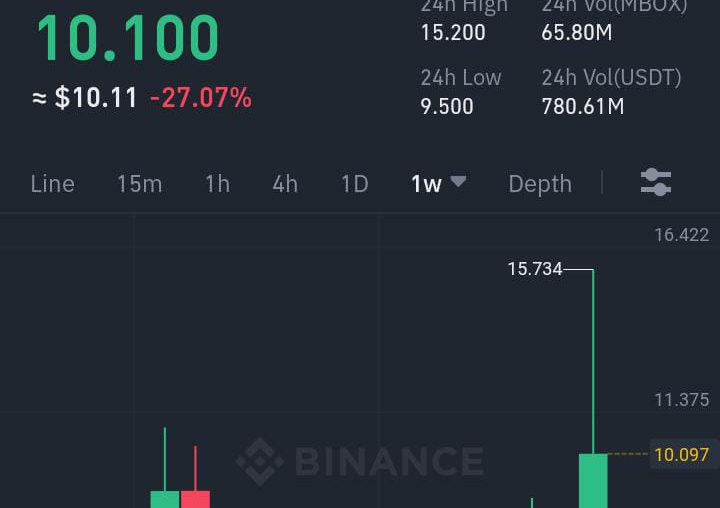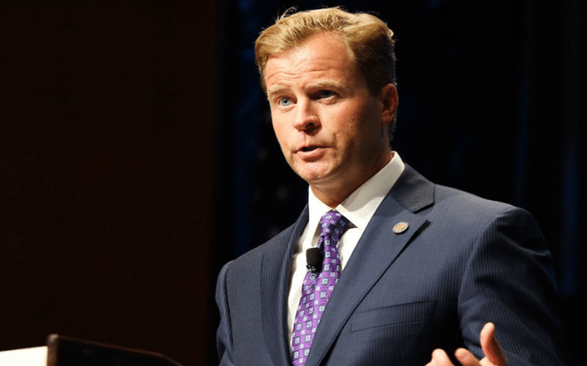By Jude Ayua
The United States Securities and Exchange Commission (US SEC), in its press release, September 12, announced that it has reached a settlement with eToro USA LLC, a crypto firm that operated an unregistered broker and clearing agency.
The terms of settlement included eToro’s agreement to pay $1.5 million for the US SEC’s charges against it and resolve to “cease and desist from violating the applicable federal securities laws.” eToro will now offer only a limited set of crypto assets for trading on its platform in the US.
eToro announced that its US customers will continue to trade only bitcoin (BTC), Bitcoin Cash (BCH), and Ether (ETH) tokens. Also, it has allowed its customers up to 180 days starting September 12 to sell off their other crypto assets.
Read also: U.S SEC drops investigation on Ether: What It Means for Ethereum’s future
eToro’s illegal operations
The US SEC charged eToro for having been offering crypto assets as securities on its trading platform “since at least 2020” without complying with federal securities laws. The US SEC stated that its investigation of eToro’s case was conducted by Jon Daniels, Alison Levine, and Tiantong Wen, with assistance from Samuel Wasserman, Ben Kuruvilla, and Lisa Knoop, with supervision by Mark R. Sylvester and Jorge G. Tenreiro of the Crypto Assets and Cyber Unit. From its statement, the US SEC has expressed satisfaction with the outcome of the case:
“By removing tokens offered as investment contracts from its platform, eToro has chosen to come into compliance and operate within our established regulatory framework. This resolution not only enhances investor protection, but also offers a pathway for other crypto intermediaries,” said Gurbir S. Grewal, Director of the SEC’s Division of Enforcement.
Reports show that eToro’s illegal operations were not only in the US. In March 2024, eToro was accused of offering unregistered securities in the Philippines. In a statement, the Philippines SEC informed the public that eToro was not authorized to sell or offer securities to the public in the Philippines. Unlike in the US, the Philippines SEC did not penalize eToro. Instead, the SEC warned:
“…those who act as salesmen, brokers, dealers or agents, representatives, promoters, recruiters, influencers, endorsers, and enablers of the ETORO platform in selling or convincing people to invest in this platform within the Philippines even through online means may be held criminally liable …”
The Philippines SEC stipulated a fine of 5 million Philippines Pesos or imprisonment for 21 years or both, for any person found liable for the offense stated above.
The US SEC’s crypto compliance enforcement
Cointelegraph’s report shows that the US SEC has recorded a remarkable year for crypto compliance enforcement between 2023 and 2024. According to the report, as of September 10, the SEC “imposed nearly $4.7 billion of enforcement actions against crypto firms and executives in 2024, an over-3,000% jump from 2023.” The SEC’s largest settlement this year was with Terraform Labs and its former CEO, Do Kwon, in June. So far in 2024, the SEC has settled 11 enforcement actions.
Read also: Uniswap Labs receives Wells Notice from the US SEC.
This record suggests that the US SEC is unrelenting in its crypto enforcement efforts. Notably, the US SEC has been a leading regulator of the crypto market in the country. In a recent speech, Grewal, Director of the SEC Division of Enforcement reiterated the SEC’s commitment to enforcement in the crypto market to protect investors. Disclaiming the public notion that the SEC is “exceeding [its] authority, regulating by enforcement, stifling innovation, and driving it overseas,” Drewal emphasized, “As long as investors in securities are being harmed now, we must act now.”
Another point Grewal noted was the Enforcement Division’s effort to regain public trust amidst prevailing frauds in the crypto market. To achieve this, Grewal said he has “developed a playbook…to protect investors and reclaim and enhance public trust.” Grewal’s “playbook” is built on three principles:
- Robust enforcement: this entails the Division conducting its investigations in every case “with a sense of urgency” and moving to address emerging risks in the market;
- Robust remedies: this involves “seeking penalties and remedies … to both hold bad actors accountable and deter misconduct;” and
- Robust compliance: this includes collaborating with stakeholders to “create a culture of compliance and cooperation to prevent misconduct.”
With these principles, Grewal is confident that the SEC will continue to proactively oversee the market both to ensure compliance and protect investors.
Read also: Terraform Labs Collapse: What went wrong and how does it affect Terra Luna’s future?
Takeaways for digital assets operators
The eToro and US SEC’s settlement has significant implications for the crypto firm including cost, customer base, and reputation implications. Paying the $1.5 million penalty and delisting most crypto assets from its trading platform in the US market means a huge financial loss for eToro. Having agreed to trade only BTC, BCH, and ETH on its platform in the US market, this restriction would potentially decrease eToro’s customer base; it is not every user that holds or trades these three tokens. Lastly, the US SEC’s charges against eToro for violating US federal securities laws impacts eTororo’s reputation negatively. Considering the previous allegations against it for a similar offense in the Philippines, the firm may begin to lose some credibility.
Digital assets operators can learn the following from eToro’s settlement with US SEC:
- Compliance: Digital assets operators including crypto-trading platforms should be compliant with applicable laws and regulations in the countries they operate. In Nigeria for example, the Securities and Exchange Commission released Rules on Digital Assets in 2022, which requires virtual assets service providers (VASPs) to obtain a license to operate in the country. Apart from local laws and regulations, there are global regulations such as the Financial Action Task Force recommendations, and regional regulations such as the European Union’s Markets in Crypto-Assets Regulation, which operators must take note of. Compliance also enables operators to maintain legal status and legitimacy to operate.
- Penalties: Digital assets operators can also avoid paying huge fines and other penalties when they are compliant. Regulators in countries that have existing regulations covering digital assets are usually strict on compliance. Digital assets firms can save themselves the cost of penalties which in most cases exceeds the cost of compliance. For example, the US SEC charges firms $147.60 per $1,000,000 to register their securities. This is best for any firm compared to a fine or settlement of $1.5 million as in eToro’s case.
- Reputation: Business thrives on goodwill and reputation among other factors. Beyond making profit from the market, digital assets operators should focus on building public trust in their platforms. Apart from penalties, such tags as “fraudulent,” “illegal,” “unauthorized,” and “unregistered” negatively impact the reputation of firms. It is important for digital assets operators to avoid these by being compliant with applicable laws.
Read also: U.S SEC’s XRP lawsuit against Ripple finally over.
About the Author: Jude Ayua is a policy analyst at CAB. A lawyer, Jude is an associate at Infusion Lawyers where he is a member of the Blockchain & Virtual Assets Group. He is also a member of the Policy & Regulations Committee of the Stakeholders in Blockchain Technology Association of Nigeria (SiBAN). Jude reports and writes on crypto policy and regulations. jude@infusionlawyers.com
Discover more from Crypto Asset Buyer
Subscribe to get the latest posts sent to your email.





